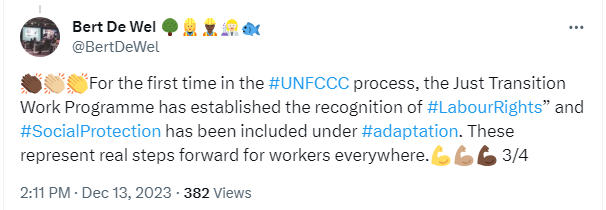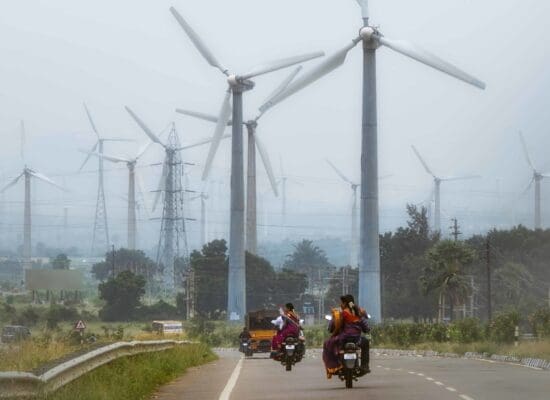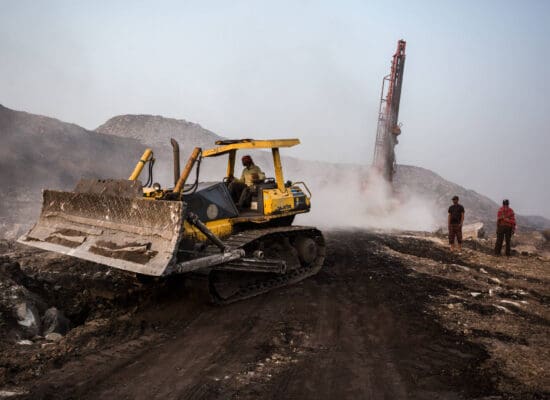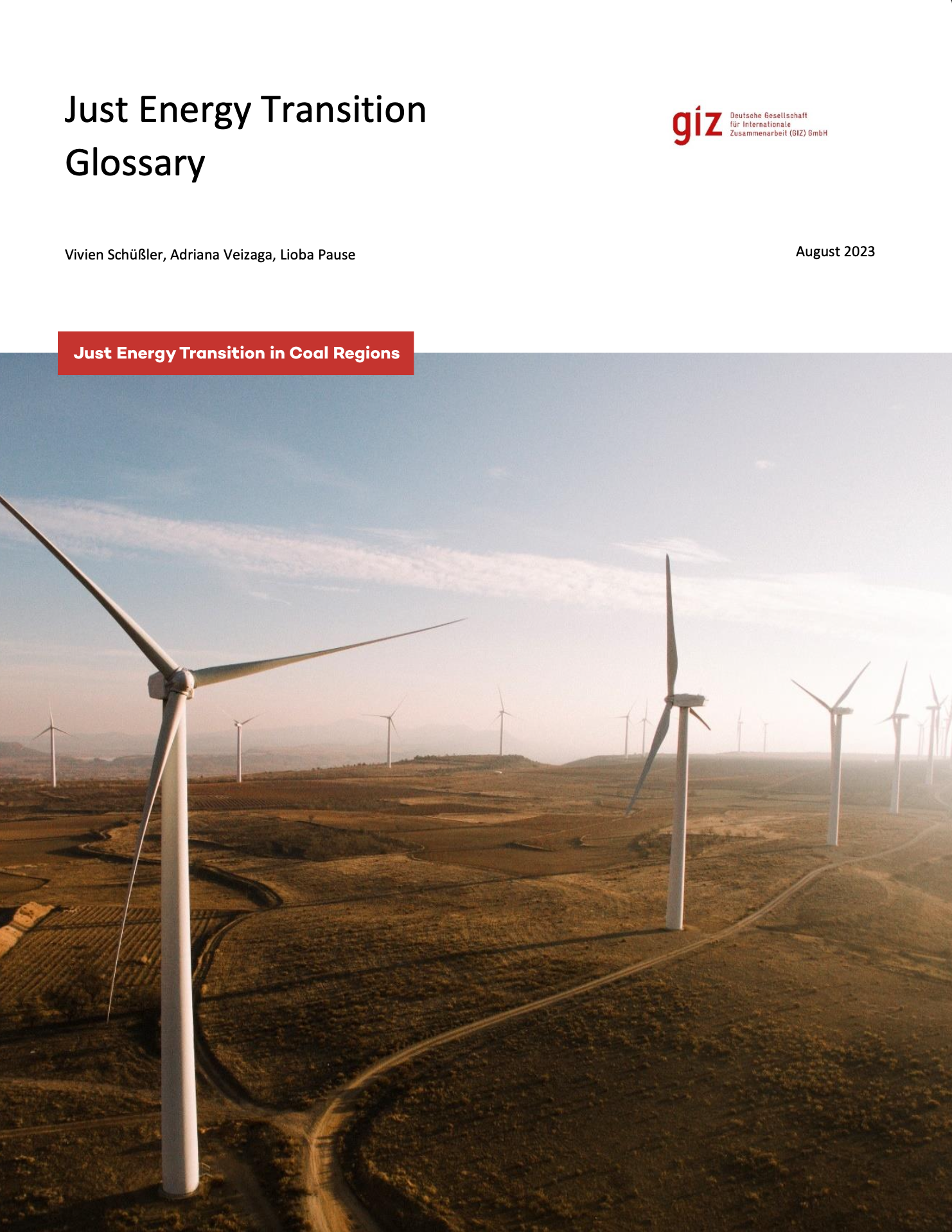COP 28
Just Transition at COP 28: How much progress was actually made?
Country:
Global,
Organisation:
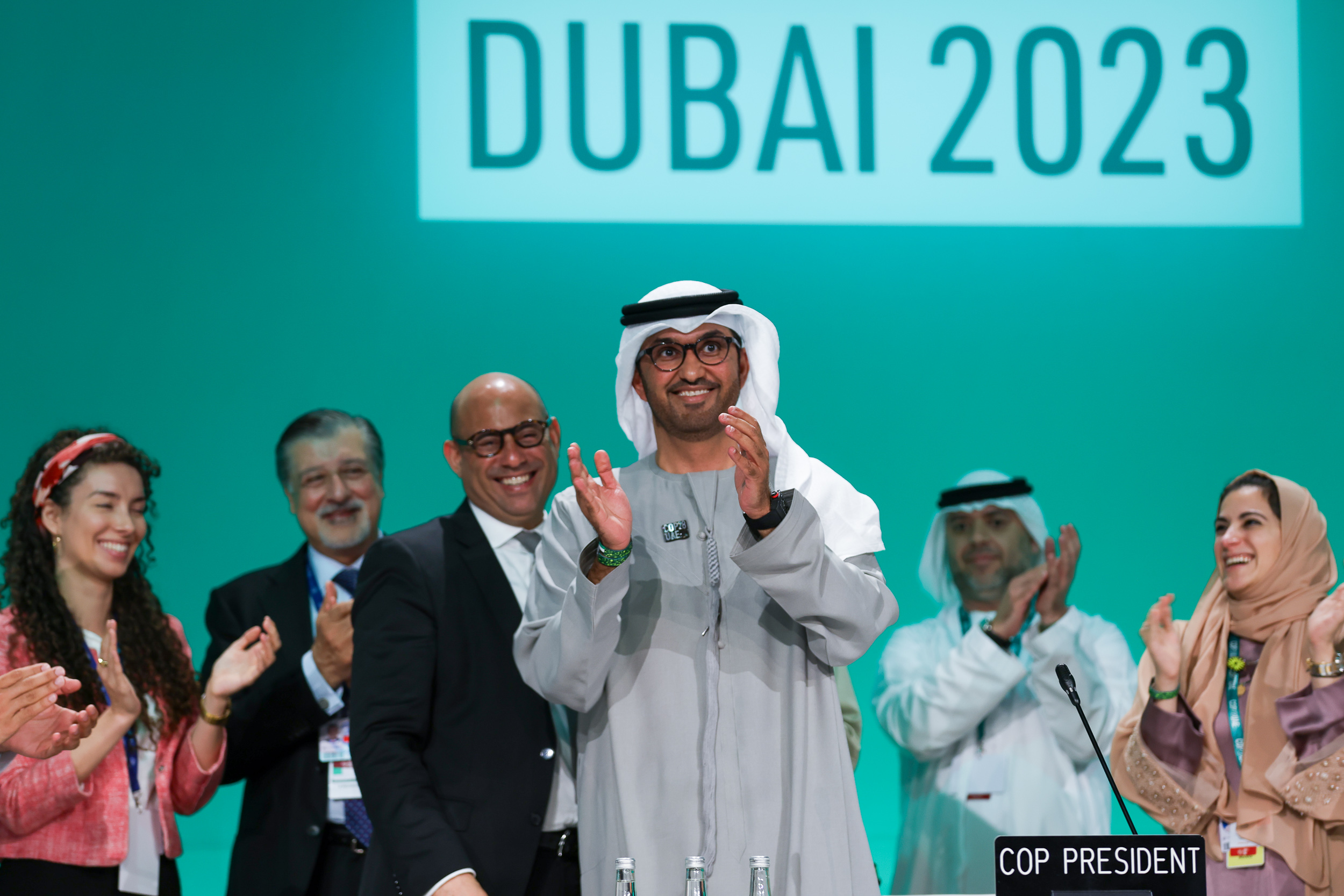
As weary delegates depart Dubai following negotiations that ran into the early hours of December 13, the world is digesting key takeaways from a high-stakes 28th Conference of the Parties (COP 28) to the United Nations Framework Convention on Climate Change. While the global stocktake and its wording around fossil fuel phase-out dominated the headlines, the topic of just transition gained traction in both high-level discussions and civil society discourse. Here, we outline the big just transition stories from COP 28.
The Just Transition Work Programme (JTWP)
Negotiators, experts, journalists, and many others came to Dubai to find common ground on what exactly the work programme on just transition pathways, more commonly referred to as the Just Transition Work Programme or JTWP, would look like. Established in concept at last year’s COP 27, the work programme is intended to “assess, design and scale up pathways to achieve the goals of the Paris Agreement in a way that is just and equitable for all, and leaves no one behind.” COP 28 was the opportunity to lay out concrete objectives, with the Climate Action Network International outlining that the work programme “should guide action on just transition.” Delegates worked night and day, often behind closed doors, negotiating the scope, form, modalities, and time frame of the JTWP.
Throughout the negotiations, there was one thing all parties could agree on: there is no transition without a just transition. However, consensus on the breadth and scope of the JTWP remained elusive. One sticking point, explained International Trade Union Confederation’s (ITUC’s) Bert De Wel, was the persistence of two opposing visions among JTWP delegates, with one faction focused on labour rights, while the other called for a broader approach, focusing on global justice, equity, and international cooperation.
On December 13, an agreement was reached, and a decision was made to adopt a final text. Despite some shortfalls like weak participatory processes and a lack of operational outcome, much of the text was welcomed by trade unions and civil society as a positive step forward, with references to social dialogue, labour rights, enhanced international cooperation, and a link to just transition work outside the United Nations Framework Convention on Climate Change processes celebrated in particular.
Philip Gass, Director, Just Transition, International Institute for Sustainable Development, highlights that “it is crucial that workers and those affected by climate change are central to policy responses, and the decision on the work programme on just transition pathways is a solid step in the right direction in this regard. The decision embeds explicit reference to “social dialogue, social protection and the recognition of labour rights,” all of which are essential for a just transition that is consistent with ILO Guidelines. Labour, civil society, and other stakeholders fought very hard before and during COP to ensure these protections, so it is positive to see parties agree as well. Given the significant focus in the COP 28 decision documents on fossil fuels, this focus on just transition moves us to implementation with the right balance of the economic and environmental aspects of climate action while ensuring that the social impacts of transition are given equal consideration. With that said, it is coming implementation that will show the strength (or not) of these commitments in practice.
Trade unions and civil society groups were also quick to criticise the removal of references to “country-driven, gender-responsive, inclusive and participatory, socially just approaches to pathways to just transition” that consider “human rights, labour rights, rights of Indigenous Peoples, vulnerable groups, children and youth, local communities and ecosystems” from the final text.”
The Global Stocktake (GST)
This was the big story at COP 28. As an inventory of international climate progress since the 2015 Paris Agreement, the GST defines the legacy of COP 28. Much attention was paid to wording around fossil fuels in the GST text, with many calling for a complete phase-out rather than more ambiguous phrasing. But what about just transition? How would this be incorporated, if at all? Trade unions were clear in their demands that the text should reference meaningful social dialogue and stakeholder participation.
The Outcome
- The final GST text recognises the adoption of the JTWP and explicitly references the importance of a “Just transition of the workforce and the creation of decent work and quality jobs in the context of minimising impacts of response measures.”
- The GST’s absence of any explicit reference to labour rights, either in the context of mitigation or in climate adaptation strategies, has been noted by trade unions.
- While the programme recognises the importance of involving diverse groups, such as Indigenous Peoples, women, and youth, it lacks clear guidelines for their active participation and co-design of just transition plans.
- The GST does not refer to the broader perspective on just transition, particularly the provision of international support, finance, and technology transfer to countries in need, neglecting the totality of the programme.
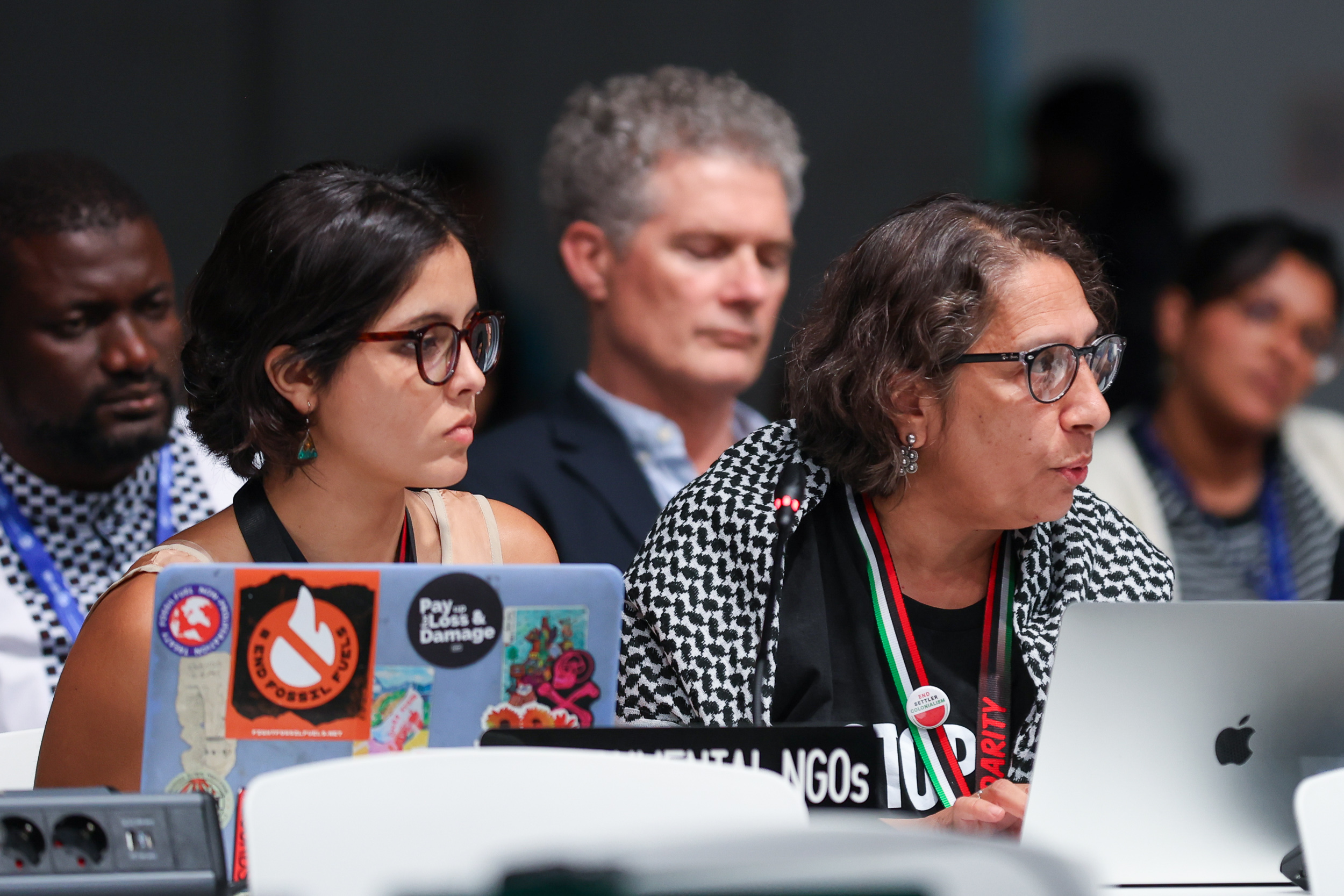
What comes next?
With the adoption of the JTWP, progress has been made. Just transition has moved from the sidelines into central climate discussion. There is also growing recognition that the financing of just transition needs to be addressed, and that it matters for adaptation as well as mitigation. However, there is much work still to be done, says Bert de Wel of ITUC, “and we still haven’t committed to actually doing it—the ‘how’ is not clear.”
One key element required to implement a just transition is technical assistance and finance—public and private, domestic and international. More attention needs to be given to this, especially in the context of developing countries says Camilla Roman of the ILO. She outlines that “Just transition relies on coherent national policies but also on international cooperation—the two have to be clearly acknowledged and translated into national and international commitments and actions.”
In terms of concrete steps forward, Third World Network reports that at least two hybrid-format dialogues will take place each year as part of the work programme, with the first to be held in June 2024 and the second in November 2024. In addition, “parties, observers and other non-party stakeholders” are invited to “submit views on work to be undertaken under, as well as possible topics for the dialogues under the work programme via the submission portal by February 15 each year beginning in 2024.” There will also be an annual high-level ministerial round table on just transition.
As things stand, the just transition work programme will run until November 2026. Following a review process to monitor “the effectiveness and efficiency of the work programme, the continuation of the work programme will be decided at that time.”
Responding to the final COP 28 agreement, ITUC General Secretary Luc Triangle said: “Some progress has been made at this COP; however, much more needs to be done. The fact that certain countries continue to block any reference to unions in the Global Stocktake and elsewhere reflects poorly on those countries and, more importantly, will hold back progress. Government climate negotiators have recognised that explicit reference to labour rights, decent work, quality jobs and social protection is necessary. However, sufficient financing must be delivered coherently and the ILO Just Transition Guidelines, agreed by tripartite discussions between union, government and employer representatives, need to be put into practice.”
Other just transition stories from COP 28
- The first ever high-level ministerial round table on just transition took place on December 3, with the aim to “provide a platform for a political discussion on framing and implementing just transitions and on the scope and direction for the work programme on just transition pathways.”
- A new Gender-Responsive Just Transitions & Climate Action Partnership was launched on December 4. This partnership will focus on supporting women’s economic empowerment and ensuring that livelihoods are protected during the transition to a low-carbon and sustainable economy.
- The first roadmap for financiers implementing the just transition was launched at COP 28. Just Transition Finance: Pathways for Banking and Insurance was co-published by the United Nations Environment Programme Finance Initiative and the ILO.
- North Macedonia unveiled its just energy transition investment platform on December 3. The platform will target the complete phase-out of coal-fired power and the deployment of 1.7 gigawatts of renewable energy by 2030.
- A year after its USD 15.5 billion Just Energy Transition Partnership (JETP) was announced, Vietnam presented its investment plan at a COP 28 side event. However, no concrete timeline for retiring coal plants has been included, with nearly 60% of the funds promised under the deal coming in the form of commercial loans.
- The United Nations Research Institute for Social Development published a new research and policy brief titled: Just Energy Transition Partnerships: Towards a collective assessment.
You can find a summary of our event Advancing International Cooperation and Knowledge Exchange for Implementing Just Energy Transitions in Coal Regions, which took place on December 10 at the Just Transition Pavilion at COP 28, here.
Stay Informed and Engaged
Subscribe to the Just Energy Transition in Coal Regions Knowledge Hub Newsletter
Receive updates on just energy transition news, insights, knowledge, and events directly in your inbox.
